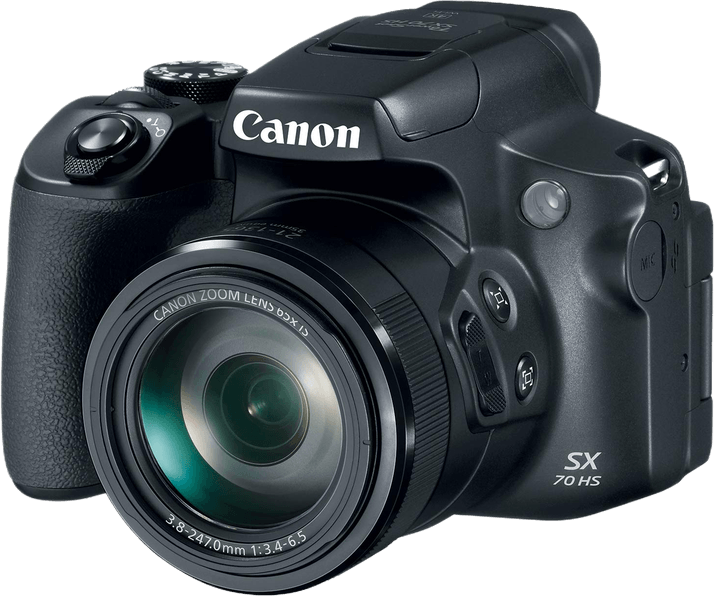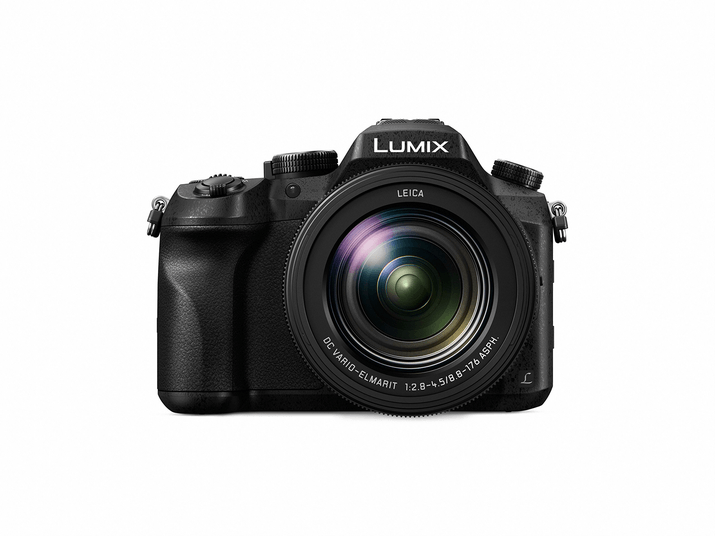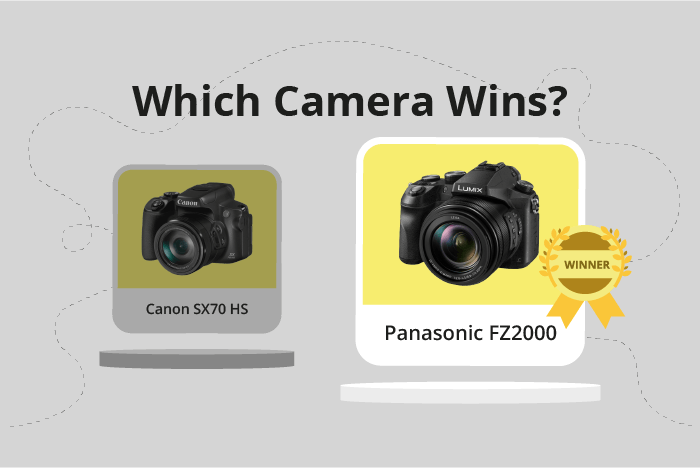Canon PowerShot SX70 HS vs Panasonic Lumix DMC-FZ2000 / FZ2500 Comparison
Canon PowerShot SX70 HS

Panasonic Lumix DMC-FZ2000 / FZ2500

The Panasonic Lumix DMC-FZ2000 / FZ2500 outperforms the Canon PowerShot SX70 HS with a score of 63/100 compared to 49/100. Both cameras are bridge types, released in 2016 and 2018, respectively. They share similar specifications, with the Panasonic Lumix being larger and heavier at 138 x 102 x 135mm and 915g, while the Canon PowerShot measures 127 x 91 x 117mm and weighs 608g.
The Panasonic Lumix’s higher score makes it a better camera, despite its heftier launch price of $1199 compared to the Canon PowerShot’s $549. The Canon PowerShot, however, has the advantage of being lighter and more compact, making it easier to carry around.
Taking these points into consideration, the Panasonic Lumix DMC-FZ2000 / FZ2500 is the superior camera in terms of performance, while the Canon PowerShot SX70 HS offers a more portable option.
Canon PowerShot SX70 HS vs Panasonic Lumix DMC-FZ2000 / FZ2500 Overview and Optics
The Panasonic Lumix DMC-FZ2000 / FZ2500 outperforms the Canon PowerShot SX70 HS in terms of optics, scoring 62/100 compared to the Canon’s 49/100. Both cameras share some common specifications, including 20 megapixels, CMOS sensor type, and a fixed lens mount, which means the lens cannot be changed.
The Panasonic Lumix DMC-FZ2000 / FZ2500 excels in several areas. It has a faster shooting speed of 12 compared to the Canon’s 10, which allows for better action and sports photography. The sensor size of the Panasonic is larger at 1″, providing better image quality and low-light performance than the Canon’s 1/2.3″ sensor. Additionally, the Panasonic’s DXOMARK sensor score is higher at 70, compared to the Canon’s 58. The Panasonic also features image stabilization, which helps reduce camera shake and improves image sharpness, while the Canon lacks this feature.
However, the Canon PowerShot SX70 HS has its own advantages. It is equipped with the Digic 8 processor, which is considered more advanced and powerful than the Panasonic’s Venus Engine. This could potentially result in faster image processing and better noise reduction.
Taking these factors into account, the Panasonic Lumix DMC-FZ2000 / FZ2500 is the superior option in terms of optics, with better overall performance and features such as a faster shooting speed, larger sensor size, higher DXOMARK sensor score, and image stabilization. The Canon PowerShot SX70 HS, although having a powerful processor, falls short in comparison, making the Panasonic the recommended choice.
Canon PowerShot SX70 HS vs Panasonic Lumix DMC-FZ2000 / FZ2500 Video Performance
The Canon PowerShot SX70 HS outperforms the Panasonic Lumix DMC-FZ2000/FZ2500 in video capabilities, scoring 91/100 compared to Panasonic’s 69/100. Both cameras share a common feature of 4K max video resolution, ensuring high-quality video recording. However, there are notable differences between these two cameras that contribute to their video performance.
The Canon SX70 HS boasts a higher max video frame rate of 120fps, double that of the Panasonic FZ2000/FZ2500, which has a maximum of 60fps. This allows the Canon model to capture smoother slow-motion footage and provide a more versatile recording experience. Additionally, the Canon camera has a built-in time-lapse functionality, a feature absent in the Panasonic model. This function enables users to create stunning time-lapse videos without the need for external software or equipment.
On the other hand, the Panasonic Lumix DMC-FZ2000/FZ2500 offers slightly larger max video dimensions at 4096 x 2160, compared to the Canon’s 3840 x 2160. This difference, though minimal, provides a slightly wider aspect ratio for the Panasonic camera, which may appeal to some users.
Taking these factors into consideration, the Canon PowerShot SX70 HS stands out as the superior choice for video performance due to its higher frame rate and built-in time-lapse functionality. Although the Panasonic Lumix DMC-FZ2000/FZ2500 presents a slightly larger video dimension, it falls short in other crucial aspects, making the Canon model the better option for those prioritizing video capabilities in their camera selection.
Canon PowerShot SX70 HS vs Panasonic Lumix DMC-FZ2000 / FZ2500 Features and Benefits
The Panasonic Lumix DMC-FZ2000 / FZ2500 outperforms the Canon PowerShot SX70 HS with a feature score of 70/100, compared to the Canon’s 54/100. Both cameras share several specifications, such as a 3-inch screen size, flip screen, GPS absence, and the presence of WiFi and Bluetooth connectivity. However, the Panasonic Lumix DMC-FZ2000 / FZ2500 surpasses the Canon PowerShot SX70 HS in certain aspects, contributing to its higher score.
The Panasonic Lumix DMC-FZ2000 / FZ2500 boasts a higher screen resolution of 1,040,000 dots, compared to the Canon’s 922,000 dots. This difference enables the Panasonic camera to display sharper and clearer images on its screen. Moreover, the Panasonic camera has a touchscreen feature, which the Canon PowerShot SX70 HS lacks. This touchscreen capability offers more convenient and intuitive controls for the user.
On the other hand, the Canon PowerShot SX70 HS does not excel over the Panasonic Lumix DMC-FZ2000 / FZ2500 in any specific feature. Both cameras have equal screen size, flip screen availability, and similar connectivity options. The Canon camera’s lower score reflects its absence of any superior features compared to the Panasonic camera.
Based on the comparison, the Panasonic Lumix DMC-FZ2000 / FZ2500 is the better choice due to its higher feature score, screen resolution, and touchscreen advantage. The Canon PowerShot SX70 HS does not offer any unique benefits over the Panasonic camera, making it a less favorable option for potential buyers.
Canon PowerShot SX70 HS vs Panasonic Lumix DMC-FZ2000 / FZ2500 Storage and Battery
The Panasonic Lumix DMC-FZ2000 / FZ2500 outperforms the Canon PowerShot SX70 HS in storage and battery, scoring 35/100 compared to the Canon’s 21/100. Both cameras share common specifications, including one memory card slot and compatibility with SD, SDHC, and SDXC memory cards.
The Panasonic Lumix DMC-FZ2000 / FZ2500 has a longer battery life of 350 shots, while the Canon PowerShot SX70 HS lasts for 325 shots. Additionally, the Panasonic offers USB charging, making it more convenient for on-the-go users. These factors contribute to its higher score in this category.
On the other hand, the Canon PowerShot SX70 HS does not excel in any specific aspect of storage and battery compared to the Panasonic Lumix DMC-FZ2000 / FZ2500. Both cameras share similar specifications, but the Panasonic has a slight edge in battery life and the added convenience of USB charging.
Taking these factors into account, the Panasonic Lumix DMC-FZ2000 / FZ2500 provides a better storage and battery experience for users, while the Canon PowerShot SX70 HS falls short in this comparison.
Canon PowerShot SX70 HS vs Panasonic Lumix DMC-FZ2000 / FZ2500 – Our Verdict
Are you still undecided about which camera is right for you? Have a look at these popular comparisons that feature the Canon PowerShot SX70 HS or the Panasonic Lumix DMC-FZ2000 / FZ2500:
- Panasonic Lumix DMC-FZ1000 II vs Lumix DMC-FZ2000 / FZ2500
- Panasonic Lumix DMC-FZ2000 / FZ2500 vs Lumix FZ80 / FZ82
- Panasonic Lumix DMC-FZ2000 / FZ2500 vs Lumix FZ300 / FZ330
- Nikon Coolpix P950 vs Panasonic Lumix DMC-FZ2000 / FZ2500
- Panasonic Lumix DMC-FZ2000 / FZ2500 vs Sony Cyber-shot RX10 IV
- Canon PowerShot SX70 HS vs Nikon Coolpix B500

